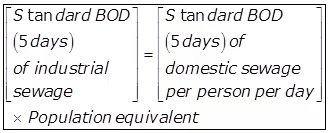Disposal of Sewage Effluent | Environmental Engineering - Civil Engineering (CE) PDF Download
Introduction
Standards of Dilution for Discharge of Wastewaters into Rivers
- Standards of Dilution based on Royal Commission Report
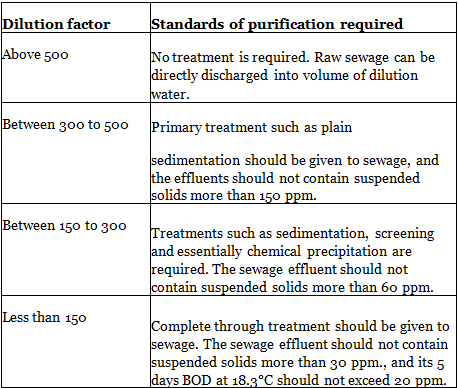
- BIS Standards for Discharge of Sewage and Industrial Effluents in Surface Water Sources and Pub
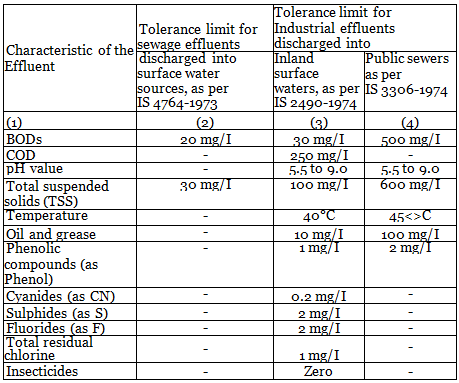
- General standards for Discharge of Environment Pollutants from effluents into Surface Water Sources, Public Sewers, and Marine Coasts Under Environment (Protection) Rules, 1986
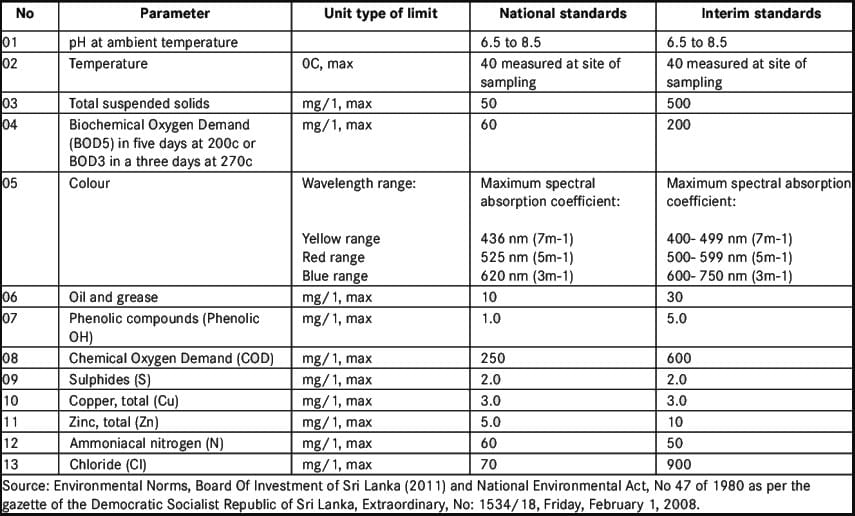
Dilution and Dispersion

Where,
Cs = The concentration of sewage in mg/lit.
Qs = A flow rate of sewage in m3/sec or lit/sec.
CR = The concentration of the river in mg/lit.
QR = Flow rate (discharge in m3/sec or lit/sec.
Cmix = The concentration of the mixture.
 |
Test: Zones of Pollution in River
|
Start Test |
Zone of Pollution in River Stream
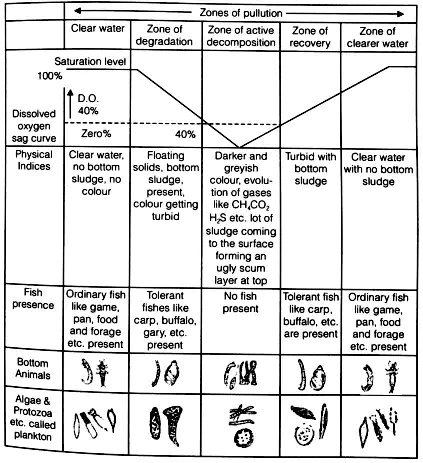

Saturation D.O at 20oC → 9.2 mg/lit.
Saturation D.O at 30oC → 7.6 mg/lit.
Saturation D.O at 0oC → 14.6 mg/lit.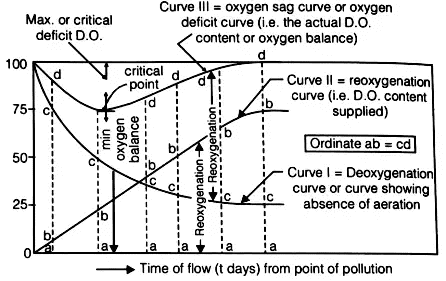
ab = cd
Where,
TOD = Theoretical oxygen demand
BOD = Biological oxygen demand
COD = Chemical oxygen demand
(BOD)u = Ultimate BOD (Yu)
Stretcher-Phelps Equation
Where,
Dt = D.O deficit in mg/lit after t days.
L = Ultimate first stage BOD of the mix at a point of waste discharge in mg/lit.
Do = Initial oxygen deficit of the mix at the mixing point in mg/lit.
kR = Reoxygenation constant
kD = Deoxygenation constant
f = Self-purification constant
tC = Critical time at which minimum dissolved oxygen occurs i.e.
DC = Critical maximum oxygen deficit.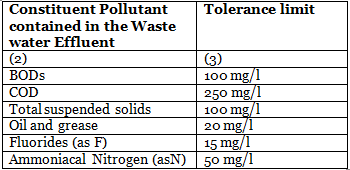
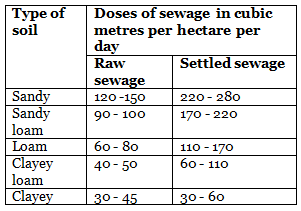
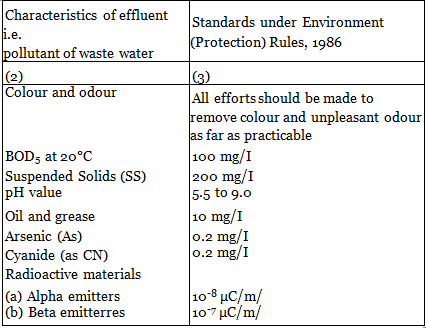
|
14 videos|99 docs|98 tests
|
FAQs on Disposal of Sewage Effluent - Environmental Engineering - Civil Engineering (CE)
| 1. What is sewage effluent? |  |
| 2. How is sewage effluent disposed of in civil engineering? |  |
| 3. What are the potential environmental impacts of sewage effluent disposal? |  |
| 4. What are the common treatment processes for sewage effluent? |  |
| 5. What are the factors to consider in choosing the appropriate disposal method for sewage effluent? |  |



